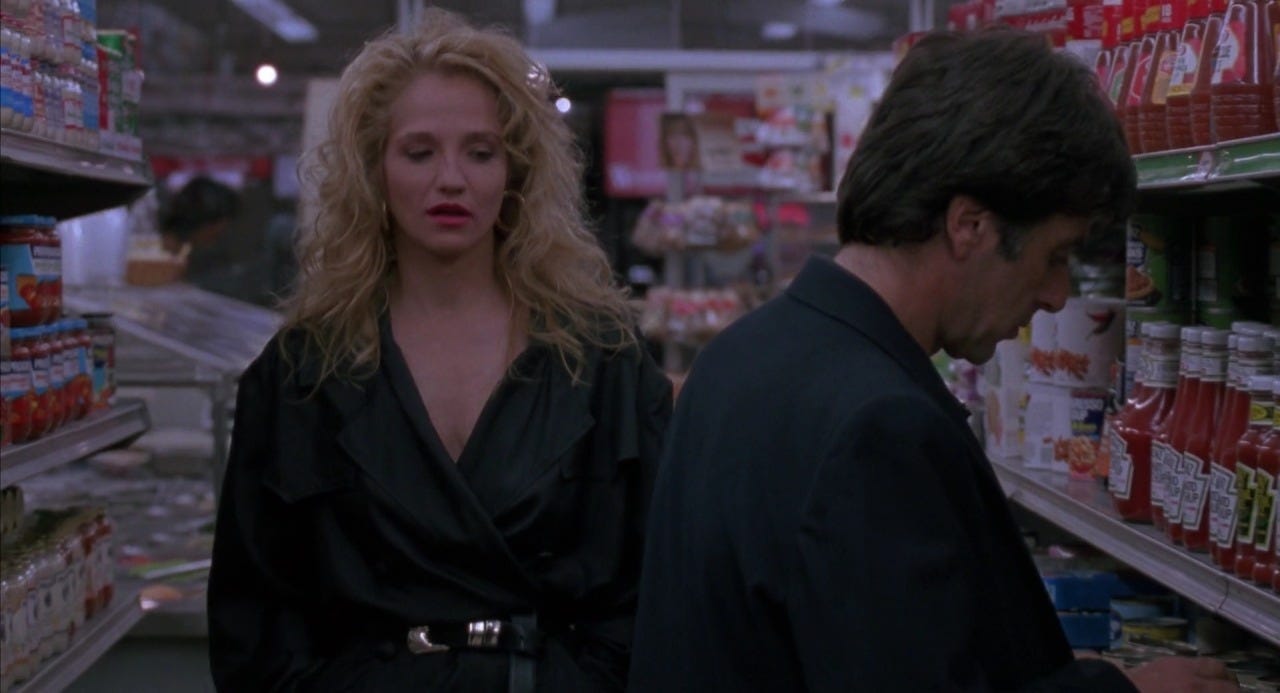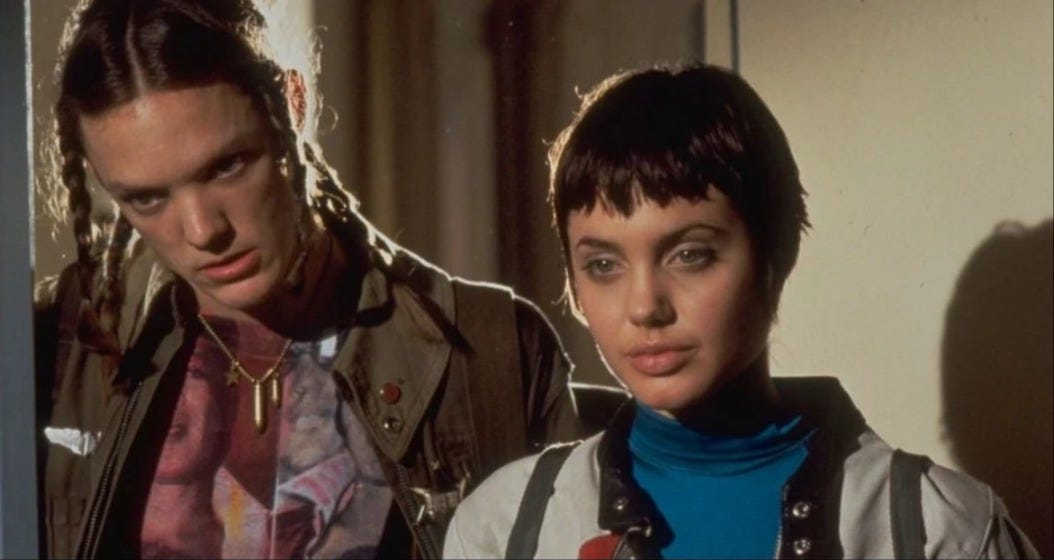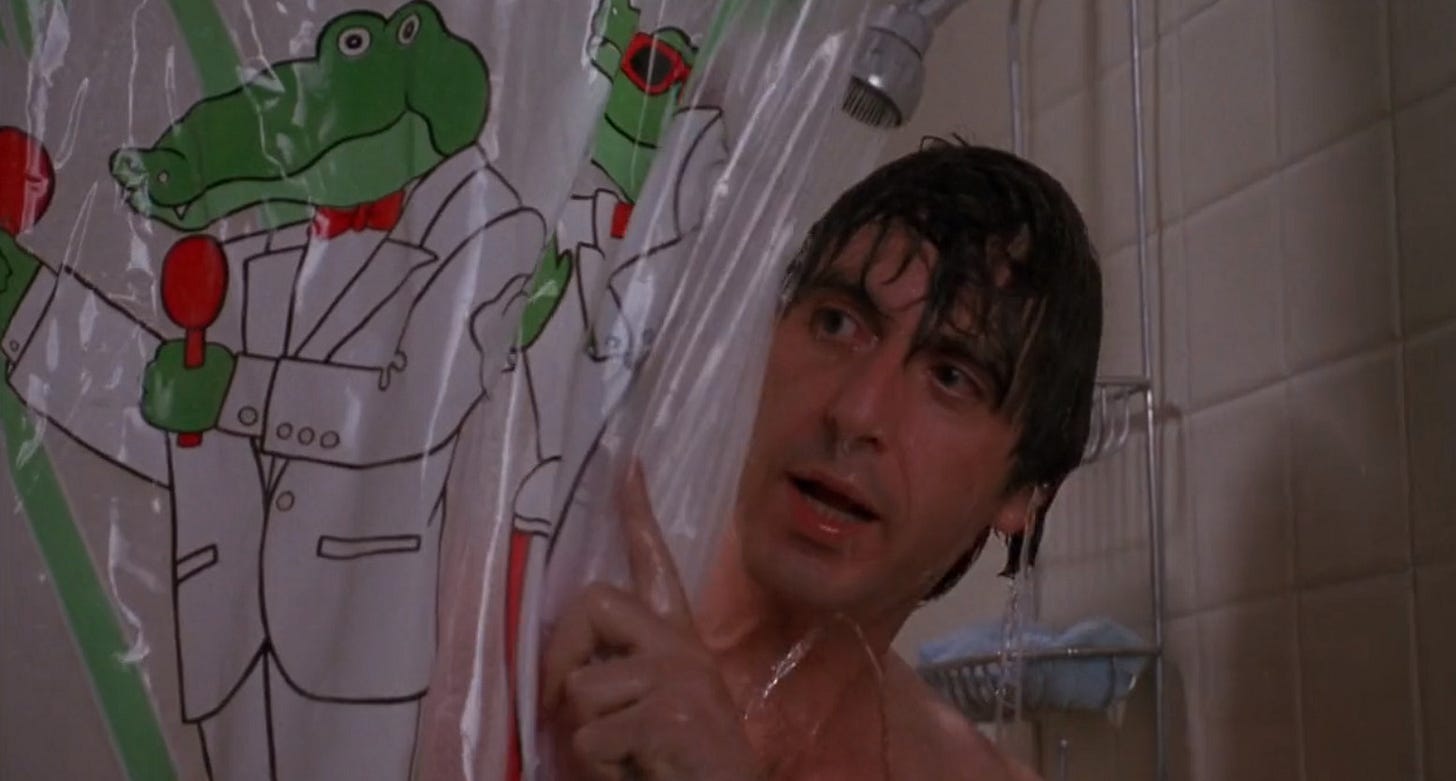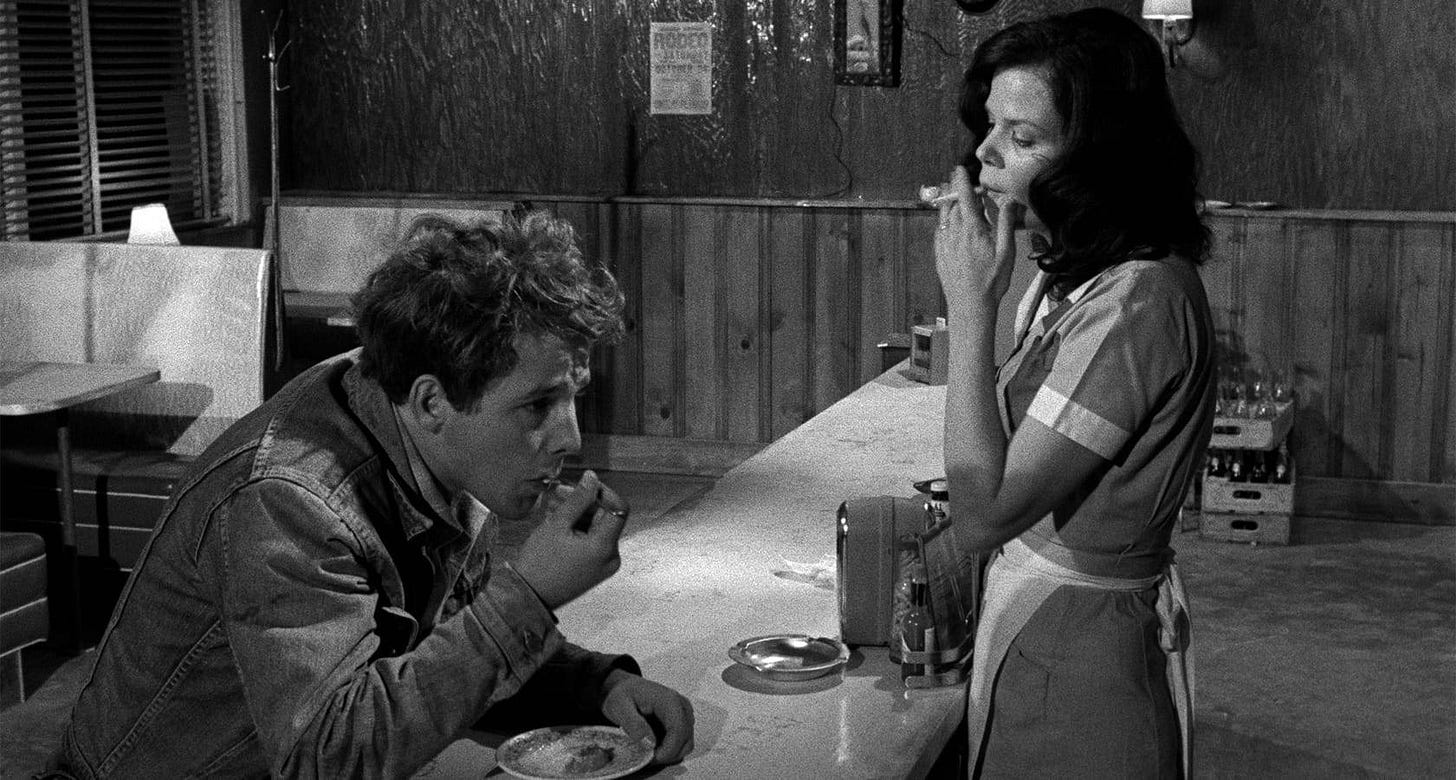Short takes #02
Compact appraisals of things I’ve recently watched and eaten, including new David Fincher, La Cantine, a trio of 70s films, and more
Excellence all around. The first installment of short takes is here.
Devoid of any of the usual tropes of food docs, Frederick Wiseman’s MENUS-PLAISIRS LES TROISGROS is an unvarnished and enthralling four-hour immersion into the world of a high-end restaurant that presents a utopic vision of what a restaurant can be. I interviewed Wiseman for Filmmaker, and reviewed the movie for Eater. Playing at Film Forum, expanding nationwide.
I was quite surprised by how Paul Vecchiali’s THE STRANGLER (1971) turned out—the uniquely eccentric anti-giallo reshapes a serial-killer movie into a considered portrait of collective loneliness. Playing select cities.
A booty call begins with eye-gazing foreplay at the freaking bodega in SEA OF LOVE (1989), which is better than it has any right to be. Al Pacino’s detective falls for Ellen Barkin’s potential suspect in this lightly erotic neo-noir which sidles up into a charmingly cheesy romance, costarring John Goodman. It also features the most delightfully arbitrary shower curtain in film history. Streaming on Netflix.
The cornball quality of HACKERS (1995), heavy on juvenile zoinks! and inside-the-machine visual sequences (more striking ways to portray computer system manipulation do in fact exist, and in the least there’s Chris Hemsworth dubious typing skills) is less alluring. This complaint doesn’t extend to its cyberpunk fits, especially Angelina Jolie’s—a scuzzy yet chic mix of materials (heavy metals, slick neoprene, cracked leather) that would feel right at home at Basement with some minor tweaking. Streaming on Max.
As funny as her first feature (Slums of Beverly Hills) and as grim as the second (Savages), Tamara Jenkins's third film PRIVATE LIFE (2018) cuts the difference between them. It’s largely invigorated by Kathryn Hahn, who proves the ideal vessel for Jenkins’ cinema of squirrelly discontent and “emotional incontinence,” to borrow a phrase from her character. Streaming on Netflix.
David Fincher has been known to divide his work into “films” and “movies” but the beauty of his work, including THE KILLER (2023) is its ability to blur this distinction. This chillingly beautiful film captures the all too relatable plight of being a cog in the capitalist machine—by rendering the traditionally glamorous/violent life of a hit man into a mundane occupation, reducing it to just another job—one that also inevitably necessitates listening to your favorite band (here The Smiths all over the soundtrack) to stay on task. Pointedly, Michael Fassbender's unnamed assassin operates without a prescribed code of conduct and the influence of detrimental pathologies. He’s simply one of us. “Forbid empathy.” “Fight only the battle you’re paid to fight.” “This is what it takes if you want to succeed.” These are mantras extracted only after you’ve been through the grind of countless, under-appreciated, hours. Streaming on Netflix.
Wildair
At this LES wine bar, fancy finger-foods are rooted in French pastry.
Pissaladiéclair are diminutive subs that artfully layer the salt, fat, acid, and sweet of calabrian anchovies, caramelized onion, buttery German cheese, and briny bits of olive onto logs of choux.
Think of pithivier, a savory puff pastry pie, as a fancy grilled cheese where a near beefy Alpine cheese wrangles the mustardy strength of broccoli rabe.
Raf’s, bakery edition
I went back to Raf’s for breakfast (dinner rundown here), where many items on the pastry menu are not always what they seem. If you are famous, like Dianna Agron, or celebrating a special occasion, like your birthday—neither of which applied to me at the time—then you will also receive a free treat.
The prosciutto & taleggio croissant does not follow the normal protocol wherein meat and cheese are stuffed inside, but rather wedges the goods in between—it is effectively a croissant sandwich, which somewhat justifies the $10 sticker shock.
As far as my eye can see, the toast with butter and jam has never encountered any source of heat. A huge let down since the “toast” in question were fluffy squares of milk bread, which in my opinion always taste superior after hitting the griddle.
The hazelnut-quince danish is built upward. The dough is coiled into a beehive stashed with the fruit, oxidized and pulverized to oblivion, and dusted with hazelnuts. It tastes a bit like pb&j and leaves too an unending trail of flakey crumbs.
Sunsets at La Cantine
At Sunsets—the evening incarnation of beloved Bushwick lunch spot La Cantine— generously portioned and priced dishes reliably change by the day. The corner restaurant also carries enough charm so as to entice me back on the L train.
Who needs rice when you have honeynut squash croquettes, glued together with molten goat cheese?
There's a bit of multiplicative pleasure happening with the dark chocolate mousse sundae, strewn with crumbles of shortbread and sugar-calcified peanuts. It’s represents the quintessence of what the restaurant aspires to be: an amalgam of American deli and French luncheonette.
You could say the same about the mushroom lasagna, six layers overloaded with chanterelles and pecorino, and fortified further with shroom broth. Comforting, simple, it’s just one of those things that just is, evoking the warmth of a hospital neighbor and charged with a casual insouciance that defies the skill it takes to prepare. And, it feels like it was made just for you.
THE LAST PICTURE SHOW
Peter Bogdanovich, 1971
The profound despair of small town living—fictional Anarene, West Texas—is conveyed with stunning clarity in this Great American Movie. Critics praised the hell out of it when it first came out, and it manages to hold up. Evocative but not sentimental, full of sorrow but also truth. The pacing is stolid and the mood resigned, casting a pall of defeat so thick you nearly forget this is technically a coming-of-age story. It’s 1951 and the senior class (Timothy Bottoms, Jeff Bridges, Cybil Shepherd) tries to get laid in lieu of contemplating their future. Thoroughly and impressively neoclassical—composed of some gorgeous and harsh images with a spotlight quality—the film doesn’t just have a sheen of Post-War American, as caught on Golden Age camera, but has been totally transfused with it. Streaming on Fubo, rentable elsewhere.
RIYL: The New Yorker piece about the Larry McMurtry biography, Robert Altman, Elia Kazan, and perhaps the idea of the Western, more than the genre itself.
CARNAL KNOWLEDGE
Mike Nichols, 1971
High Fidelity gone wrong. Three loose and lacerating vignettes lay bare the dark currents of the male psyche, tracing the arc of misogyny from college to middle age. Jack Nicholson is the smarmy alpha, his Amherst roommate Art Garfunkel is a thinky “nice guy.” Mike Nichols lets the segments, each shorter than the last, dissolve into one another, so that Jules Feiffer’s three acts (Carnal Knowledge was originally a play) don't feel disjointed, overly formal, or too “structured.” Confined to the nocturnal outdoors and then fluorescence of dorm rooms and bedrooms, Nichols makes use of the film’s limited settings and generates something rather cinematic. I don’t think for a second that he condones his characters’ actions; the keenness of the observation itself feels a condemnation. Nicholson’s bad-boy sex appeal remains lost on me, all the more so after watching this movie and the final scenes where his piratical grin stretches into a symbol of pathetic chauvinism. Boom. Streaming on Criterion.
RIYL: Nichols’s other movie Closer, Easy Rider, defending Jonathan Franzen, Albert Brooks’s Modern Romance, wondering “are men are OK?”
FAMILY LIFE
Krzysztof Zanussi, 1971
Industrial engineer Wit leaves the orderly confines of his day job and pays a reluctant visit to his family in the country. The dissonance between those two worlds is apparent: work is orderly desk set-ups, neat lab coats, and mechanical straight edges; home is anything but an arrow, a looping migraine so shrill and wonky it might not even be real. Zanussi maps the the socio-political decay of Poland onto the wild disrepair of the once-stately home and chaotic miasma of the family’s dysfunction. Streaming on Mubi.
RIYL: Joseph Losey’s The Servant, the unruliness of Cassavetes films, being the prodigal child, wondering if you can ever truly escape your family.














